Have you heard about Burger King’s ‘Keep It Real Meals’ campaign?
Well, this course of action highlights its caring attitude for the health of its customers.
In other words, it goes on to show that their customers’ health is a priority for them.
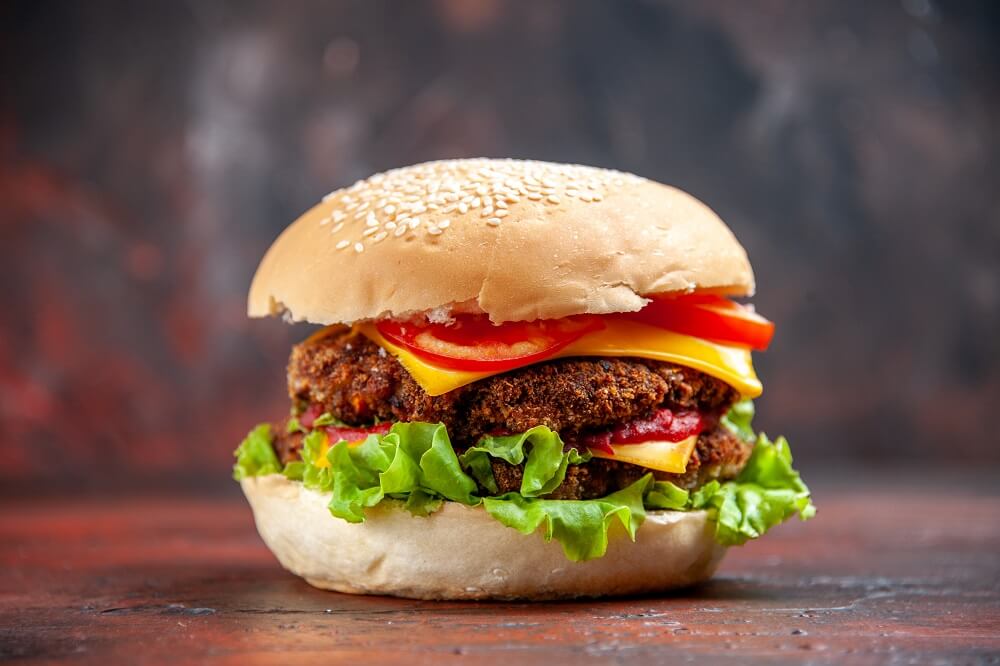
The campaign:
– Expands on Burger King’s existing commitment to provide fresher meals with more natural ingredients
– Shows that the company is blacklisting harmful, non-essential components like sodium ethyl hydroxybenzoate and potassium hydrogen sulphite.
Keep It Real Meals campaign.
Burger King agency’s David Miami developed the ‘Keep It Real Meals’ campaign, which in turn is booming due to marketing campaigns like ‘Moldy Whopper.’
The Moldy Whopper campaign shows its top-rated signature items rot over time and eventually get covered in mould.
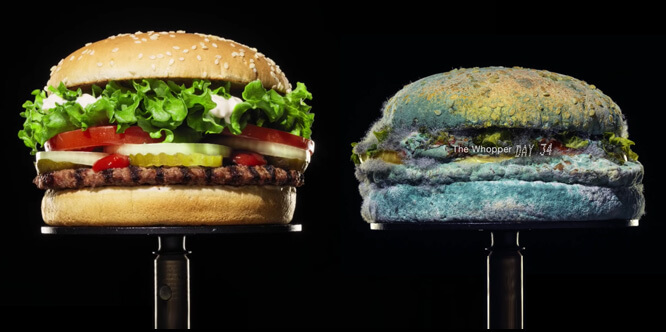
Anyone will tell you that such a campaign was difficult, but Burger King successfully pulled this off. It informs and educates the public at the same time. Its promotions declare by saying it is blacklisting and discontinuing harmful, unimportant ingredients. It educates by showing how mouldy even a premium-priced fast food becomes once it is dated.
It will be interesting to know that McDonald’s promotions inspire Burger King’s campaign. For instance, just like the latter has been investing twice as much on celebrity partnerships since last year, Burger King is following suit. Such promotional campaigns have been very successful. It has led to increased demand and sales for the companies.
But is there a reason why these companies have produced this campaign just now?
Well, the time is perfect. For instance, McDonald’s campaign started last year during the pandemic. By reminding people just how much the company cares for its customers, the promotions increase activity and orders through its delivery app.
Burger King is using the idea, of course, but with its twist. What makes their campaign different is that the company asks its brand ambassadors to use their real names in ads and promotions. This aligns their positive image and identity with the more prominent theme of ‘real food.’
For instance, in ads:
– Nelly, a well-known rapper, got a Cornell Heynes Jr Meal with a Whopper Burger, a small Sprite and small fries.
– Anita, a known singer, got a Larissa Machado Meal with an Impossible Whopper burger with several toppings but with the same sides as above.
– A well-known social influencer, Lil Huddy, showed a Chase Hudson Meal that included a Spicy Ch’King Sandwich, four-piece mozzarella sticks, and a 16-ounce chocolate shake.
As you can see, Burger King is investing considerably in star power to bolster support and loyalty for its brand.
Royal Perks loyalty program
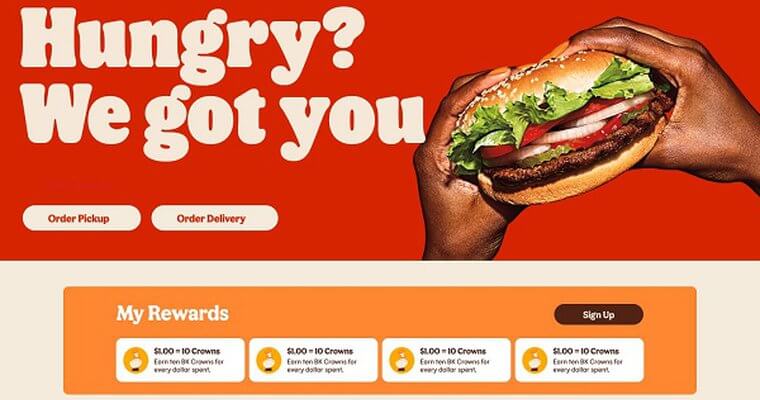
Apart from investing in brand ambassadors, the company incorporates the ambassador sponsorship program into its Royal Perks Loyalty Program. They rolled out this program nationwide in the USA, in which meals were offered for $6 when customers signed up for the program.
Burger King’s NFT strategy matures beyond stunts causing real engagement.
To leverage the impact of its campaign, the company is partnering with Sweet, a Non-fungible Token marketplace (NFT). Together they have developed a set completion game through which technology from Burger King’s digital art-based marketing can function as a customer engagement tool.
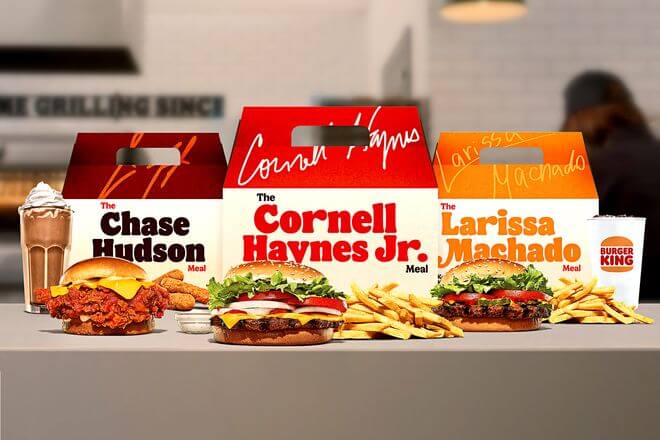
Burger King’s Keep It Real Meal boxes, from now on, will have QR codes. These can be scanned and will give access to interactive brand experiences. One can scan a QR code on these boxes to get one of three NFT collective tokens.
Those who collect the whole set will receive the fourth NFT automatically. Rewards range from:
– Digital 3D collectibles to free whopper sandwiches for an entire year
– Burger King merchandise
– One phone call from brand ambassadors
In the words of Sweet’s founder Tom Mizzone, “We’re taking a more enterprise solution-based approach to NFTs. How do you enable brands to go beyond crypto-art drops and into consumer experiences?”
The partnership aims to use blockchain-based technology for the long term and is a persistent effort.
Instead of physical toys, they will be giving virtual gifts through NFTs.
Burger King’s NFT strategy was unleashed a few weeks after the launch of its loyalty program nationwide in the USA. The process continues to function as the pathway for the company’s investments in several digital platforms. It became essential during the pandemic, which had a negative and accelerated impact on many consumer trends.
Benefits and use of NFT and the metaverse
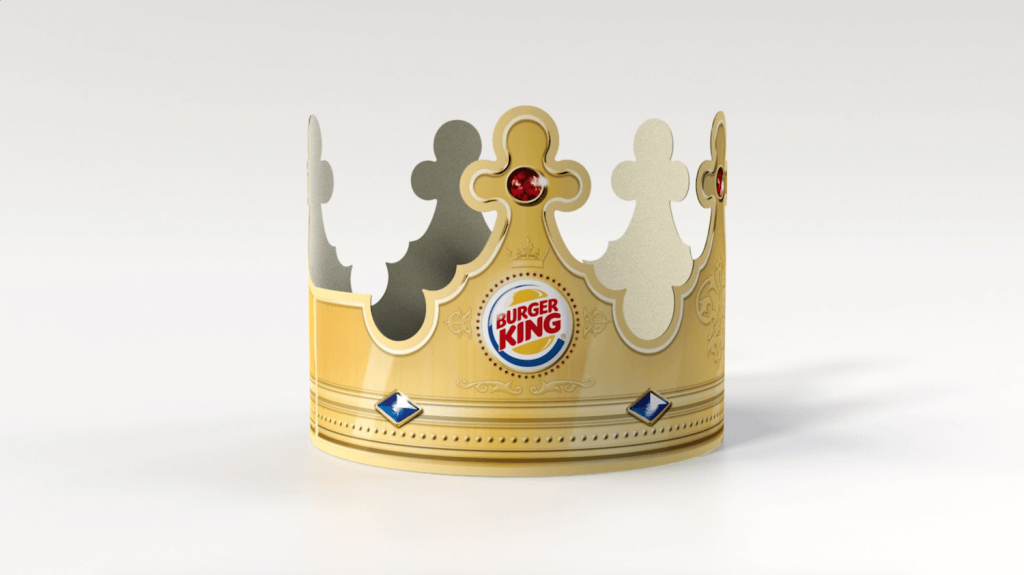
Burger King is not the only one delving into the metaverse. Facebook is doing it, and so is Coca Cola. Big names in the marketing world are gearing up for using NFTs in the metaverse to bring special inducements and rewards for their customers.
The downside is that only 38% of customers worldwide even understand the concept of the metaverse. This is one of the several hurdles that lie before companies wishing to access and use this technology.
It is advised that such companies should ease their customer base to the metaverse gradually. Once their customers understand this technology, companies can aim for mass adoption, opening up broader opportunities.

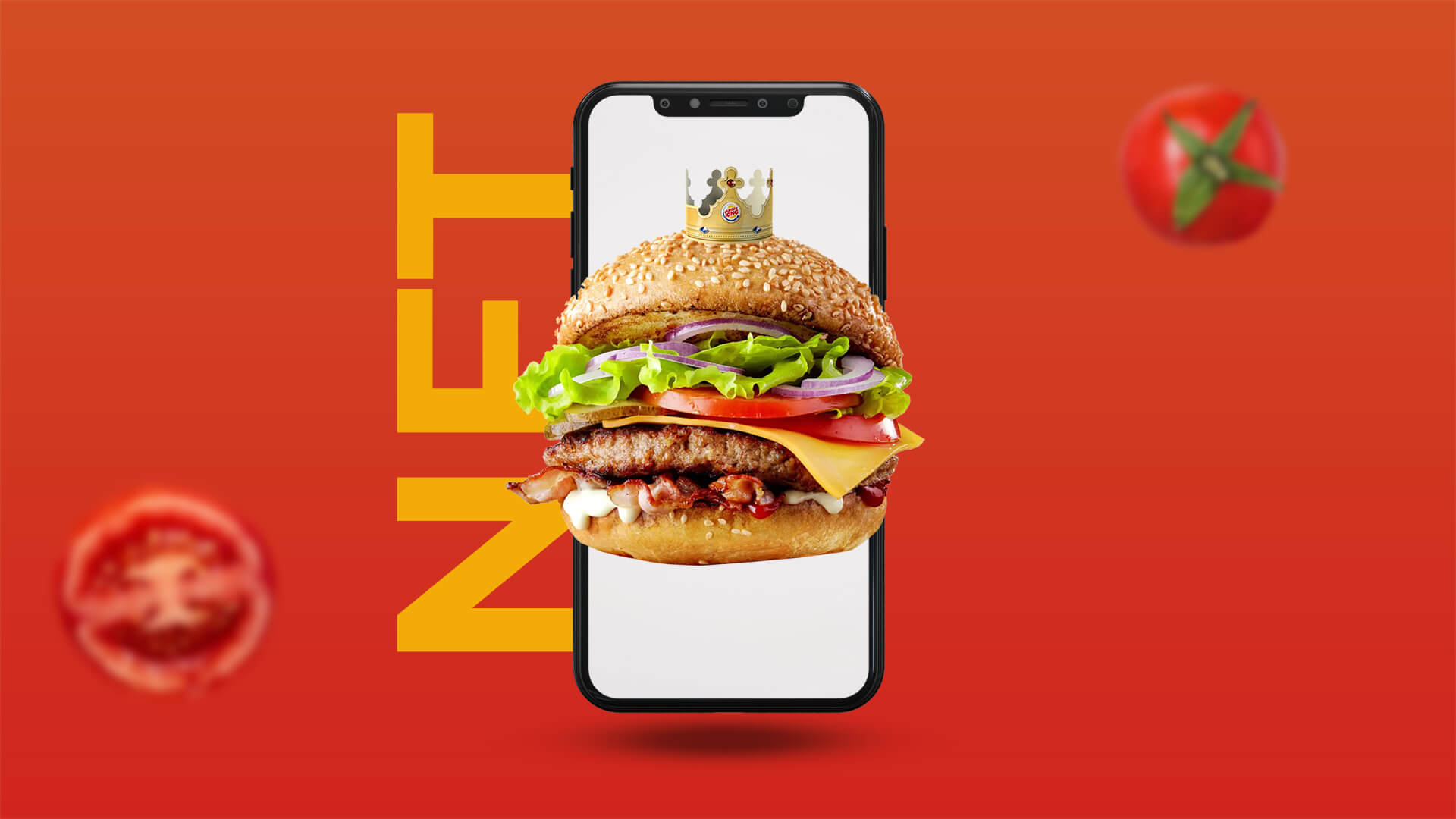
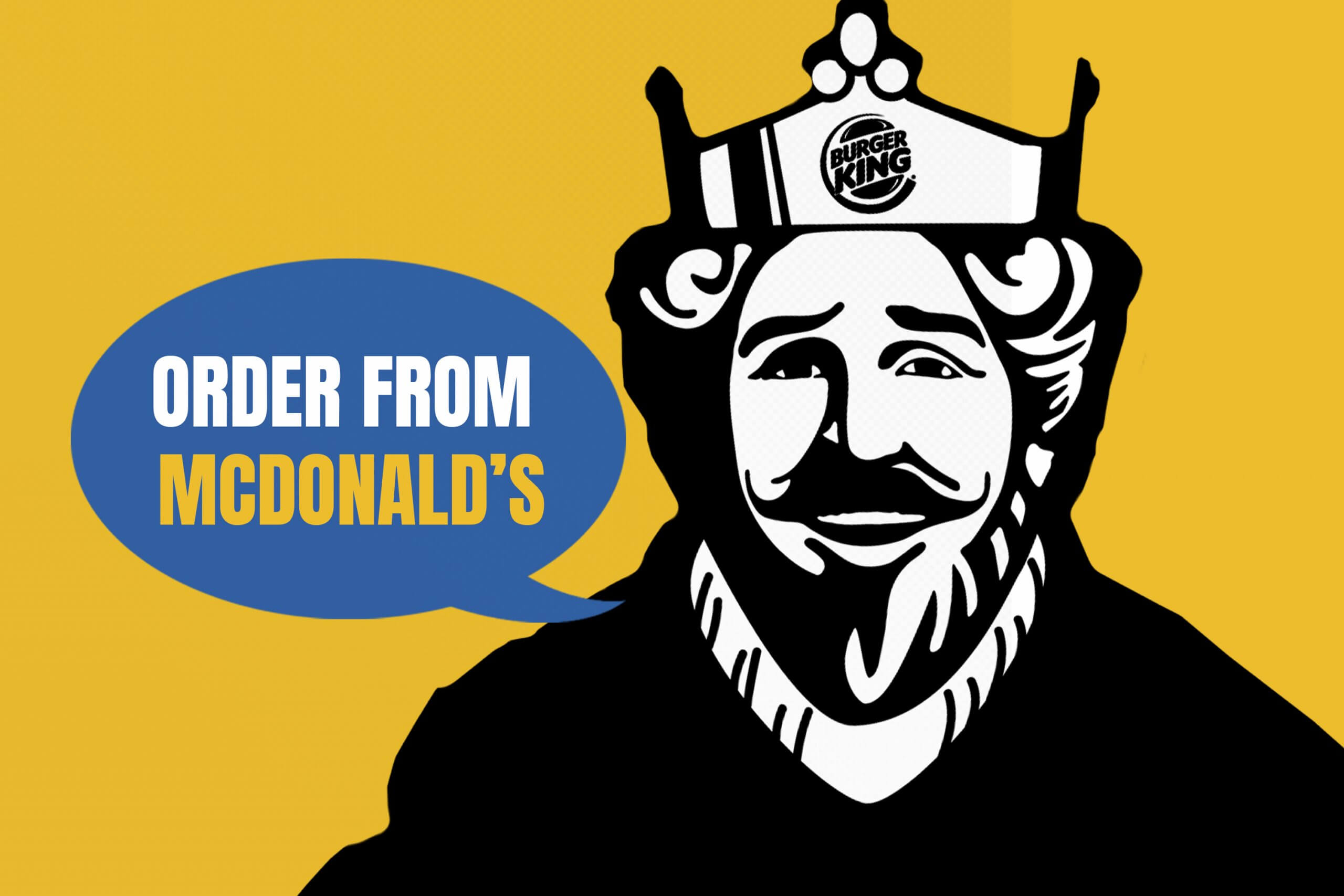





 Branding
Branding Digital Strategy
Digital Strategy PR & Communications
PR & Communications